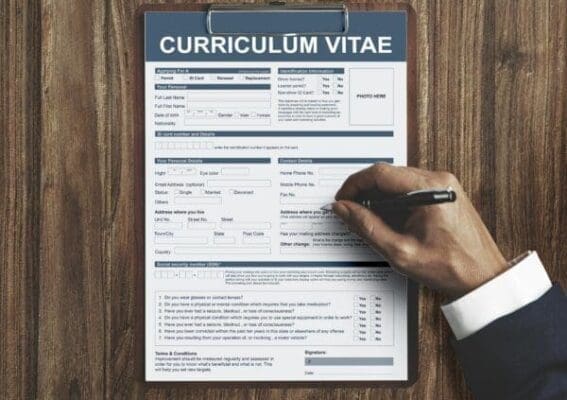Interviews: Test or Nightmare?
Aha! The dreaded job interview… every confident person’s personality test and every anxious person’s worst nightmare. So, how do we navigate these formal, yet somehow awkwardly informal whilst still requiring professional conduct, exchanges? Well, for a start, it’s a two-way street. There is quite a speculative assumption, I believe, that you either pass or fail an interview and that this is completely down to you and your capability. Whilst partially true, this is not the case interview-wide. Sometimes, interviews are conducted poorly. Interviewers or employers are not always master brain-pickers. A lot of the time, it’s their first time or one of their first times. They don’t really know what to ask or what to expect from your responses. So killer interview questions might not be abundant.
Look out for whether an interviewer is nervous, seems to be asking very generic interview questions or simply doesn’t seem to know what to say. These are all signs that they’re not analysing you as much as you probably think they are. Trust me, this interviewer is more worried about how they’re doing than how you’re doing.
So, There are Two Sides, Right?
Well yes, there really is. Both are as important as each other. From a candidate’s perspective, there are expectations. Depending on the role or type of job and a bunch of other factors. They will, however subconsciously, and mentally prepare themselves according to these factors.
The Interviewee’s Perspective
I did this once, very wrongly. I was about 16 and went for an interview to work at a local garden centre, nothing fancy, just making coffees and serving all-day breakfasts. Going in with a wealth of experience in similar jobs, I thought I would walk straight into it. Every ‘interview’ I had had before this one was more of a semi-formal chat about my experience and logistical stuff, like travelling and wages. So, I wasn’t mad to assume this would be rather similar.
Oh, how wrong I was. I sat down in an office with the manager and basically got grilled for two and a half hours. He asked me about my hobbies, previous experience, and plans for the future. 85% of this was completely irrelevant to how good my cappuccinos were (they are pretty awesome, by the way). These were not killer interview questions but simply a waste of both our time. Following this, he sat me down, made me a cappuccino (which I didn’t ask for, and ended up paying for… but I’m not bitter) and stacked the table ceiling high with 4 binders.

I signed in probably 35 places and had to read every page as he sat across and watched me. I’m 16! What in the NASA-hacking was this? I thought he’d ask me to make a quick latte, tell me I was on a fiver an hour and that he’d see me next week. I’d have had an easier time interviewing for a heart surgeon position.
Don’t be this interviewer… know the candidate and their role and stop wasting so much damn time on a glorified barista.
The Interviewer’s Perspective
Interviews can take many forms, including auditions. I recently auditioned a selection of people for a short film role. I had never done this before and was googling ‘what questions to ask an actor’ about 10 minutes before the first audition popped up on Zoom. A quick ‘do not’ on interviews, by the way: please, for the love of all that is good, stop doing interviews on Zoom! Face-to-face interactions that aren’t actually face-to-face can be draining and just difficult to navigate. We believe we’re a lot better at them than we actually are.
Remember your last Zoom training course? No, neither do I. Blocked it out of my memory along with work parties and corporate events. Anyway, I found myself auditioning these candidates as people, rather than actors. I think this is something that should be more carefully considered. Ultimately, the people presented in front of me were all talented individuals. Most likely, any one of them would have played the role well. But… we chose who we chose because she was likeable. We got along well and I knew that a decent actress that we could build a good relationship with was much more valuable than an amazing actress who we sorely disliked. Something to think about.
Sticky Learning ® is 7 times more effective than 1-day training courses. Plus, you will get a Chain of Evidence proving your Return on Investment. Discover soft skills training that changes behaviours long term.

The Killer Interview Questions
Here are six killer interview questions broken down into candidate vs. employer and what each means.
Q1: Asking About Your Previous Experience

Now, as a candidate, this is very expected. Do not fall into the trap of; ‘Well I was here, then here, did this, then left, started again in this…’ just don’t. Why? Because it isn’t new information. All of what’s just been said is written in plain English on the piece of paper called your CV. They know what jobs you have had. What they don’t know is how the skills learnt and used in those jobs can be translated into making this person money. Always come back to the job at hand, none of your previous experience matters if it’s not relevant.
But, you’re at the interview, so it must be. Tell your interviewer what they don’t already know. As an interviewer, here, you’re looking for this new information. It might take a couple of extra, more specific questions to get you there but remember that everyone is a little timid under interview pressure – cut them a little slack before judging their responses.
Q2: The Job You’re Leaving
A tricky one, this. The first step to avoiding this question going south on you, do not bad mouth your old job! A wise man once told me ‘never burn your bridges, you don’t know when you’ll need to cross back over them’. For this reason alone, try and answer in a way that suggests you feel more suited to this role, or simply that you’re looking to grow and progress and this job will facilitate that more than your old one.
Failing this, pick an objective answer. ‘Your company has better clients that will help me progress’, you can’t argue with that. Look, I know you want to sit there and say your manager was a pompous-arse that only cared about money. There are just too many ways for this to go wrong and it certainly doesn’t set you aside as an intuitive, considerate individual. As an interviewer, you’re only really looking for one thing: they don’t bad mouth… that’s it. You want them to translate previous skills into the job they’re after, but really, this is the only other option. If they’re not bad mouthing, they’re fair game.
Q3: Why Do You Want This?
This one can be really difficult. Oftentimes, it is because it pays better, or it is closer to you or any other external perk or factor that is not: ‘I feel this job will help me progress and I want to be great at it!’. The reality is, that this is the case a lot of the time. Avoid, avoid, avoid! It’s easy to think that politely explaining these factors makes you more human, more authentic. It can, but… it probably will not. It’s just not worth taking risks in these situations.

Instead, find something real that drew you to the job. Even if it was for the money, it wasn’t just for the money. Take a little truth and stretch it a bit to cover this question. As an employer, you’re looking for passion and care in the responses here. Someone who can’t shut up about why they need this job will try very hard for you, just make sure they have the skills to back it up.
On the other hand, someone who struggles to come up with reasons probably does just care about the money – this is not always bad. It always depends on the job you’re hiring for. A means-to-an-end job is a perfect job to be filled by someone like this. They probably won’t give you much hassle, they’ll get in, do their work and get out… like a ninja with a spreadsheet. If there’s plenty of room for growth in this key role for your business, hire the first person. They’ll care, they’ll want to grow and progress and that’s exactly what you need in these roles. Match the person with the job, not the person with your perception of good and bad.
Q4: Curveballs…
An odd subtitle, I know. Hear me out. Sometimes you’ll get diligent employers that are hiring for prestigious positions. Sometimes, you will find yourself in a position where you are being interviewed for one of these prestigious roles… go you! Well, not quite, not yet. These are always the toughest because you have to stand out from a crowd of people equally as qualified as you, if not more. This is where you get curveballs. Questions that you don’t, or can’t, prepare for. Questions like: ‘What do you not want me to ask you today?’… What the F*** Are you supposed to say to that?
I was asked this once in an interview, and my response was terrible. There is little help I can offer here as each employer will have their own special curveball to throw your way. Remember that these curveballs are asked of you for a reason. The employer isn’t actually asking what you don’t want them to ask, he’s using it as camouflage to judge the way you react to these types of questions. It can say a lot about you as a potential employee.
So, take your time. Don’t panic, just take a breath and think for a few seconds. Be in control and be collected. If you do this, you’re most of the way there. The employer is looking for you to panic – don’t. And if you are an employer asking these curveballs, keep doing it, they work. Just be a little cautious of how hard they are to answer.
Q5: Biggest Achievements
‘So, tell me about your biggest achievement…’
‘Well, umm, it’s probably…’

No! Stop. Be strong in your answers. It’s not ‘probably’ your biggest achievement… it is! Killer interview questions go hand in hand with killer answers. There is a lot to be said about yourself by the way you doubt yourself. Employers are looking for confidence and strength. Answer whatever you want to this, it doesn’t actually have to be your biggest achievement just answer with something significant you have done. If you don’t have a work-related one, choose a personal one. Your kids, your first house, getting married, celebrating ten years of marriage – these are all achievements, folks. They’re all viable answers. Just say it with confidence.
As an employer, I’d advise maybe avoiding this question if you can. Why? It’s probably on their CV. One thing that will surely make you look a bit stupid in front of a candidate is asking them to repeat what is right in front of you. If you don’t have a copy of their CV in front of you during the interview, well, you should not be conducting the interview. Why do we spend so much time on CV’s when you’re just going to ask us to repeat what we have written during the interview?
Print it off, too, so you’re not staring at a screen.
Q6: What is Not on Your CV That Will Help You Here?
For an employer, this is a killer question. It’s like the movie interrogation scenes where the cop puts down the report and asks the security guard to leave for a ‘minute with my friend here.’ Of course, not quite the same as a police interrogation but it’s the same principle. It’s you, as an employer, saying ‘OK, we’ve done the formalities, now who actually are you and what can you bring to us here?’ Which is what you’re looking for at the end of the day. Look for responses that show a candidate has the personality to fill the role. It is never just about experience and qualifications, you’re hiring a person, use this question to make sure they’re the right one.
As a candidate, this question is tough. A good thing to do is to have a back-pocket answer before you go into the interview. Make sure there is something for you to say that is not on that bit of paper. To give you an example, for me, it would be circus skills. I’m never going to put that on a CV as it’s largely irrelevant. However, I have this ready as an ‘I love to learn new skills and challenge myself’ answer. A couple of these up your sleeve that aren’t on your CV are great pre-loaded answers that largely can cover any questions. A great tool.
The Final Key to Killer Interview Questions
For employers, there are a few questions to avoid altogether:
- Don’t ask a candidate to describe themselves in 3 words, or 1 sentence.
- Don’t ask them where they live or their family status.
- Don’t ask them to tell you about themselves.
- Don’t ask for the information they’ve already provided.
Just a few key things to avoid, some dangerous, some simply pointless. Stick to those killer interview questions.
For candidates, keep things moving. Take your time and control your answers. Don’t blurt out the first thing you think of, it’s likely not the best answer. Be prepared for anything.
Now, whether you’re interviewing for a job or being interviewed… go smash it!




